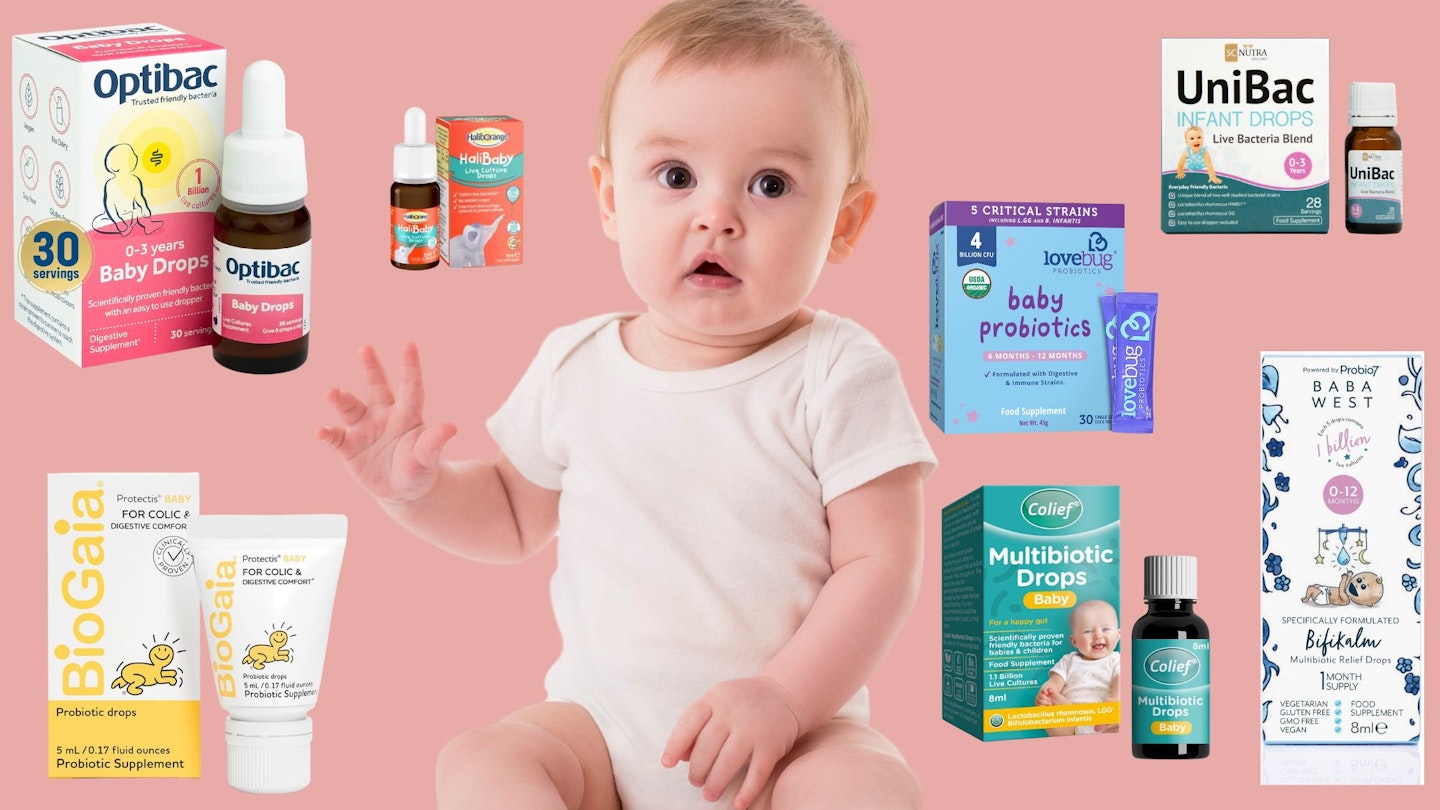Your little one's health and wellbeing are no doubt of utmost importance to you and if you've heard of baby probiotics, you may be wondering if and how they could benefit your child. With the help of Paediatric dietician Lucy Upton, in this article we delve into the science and benefits of probiotics for kids, shedding light on how they can positively impact your child.
Amazon Prime Day deals 2025: Baby probiotics
We're just popping in here to let you know that the Amazon Prime Day sale has begun, and now is the best time to take advantage of some great Prime Day deals on baby products – including baby probiotics. Ready to see what bargains there are? These are the retailers to check out, or keep scrolling to continue reading our buyer's guide.
Shop Amazon Prime Day deals on baby probiotics: Amazon
32% OFF: SMART STRAINS Baby & Toddler Probiotic Drops - Was £18.49, NOW £12.55
31% OFF: Natures Aid Mini Drops Daily Microbiotic 50ml Liquid Drops – Was £14.95, NOW £10.32
24% OFF: Optibac Probiotics Baby Drops – Was £15.99, NOW £12.15 – Buy now on Amazon
15% OFF: Colief Multibiotic Drops Baby – Was £8, NOW £6.80 – Buy now on Amazon
What are probiotics?
"Probiotics are live bacteria (or yeast) that, when given in the right amounts can have health benefits for the taker (aka us!). They are often described as ‘good’ bacteria," explains paediatric dietitian Lucy Upton.
"The term probiotics usually refers to dietary type supplements, but it’s also worth knowing that you will hear the term ‘probiotic’ also used to describe certain foods (typically cultured or fermented) that naturally contain microorganisms e.g. yoghurt, kefir, sauerkraut."
Are probiotics safe for babies?
Probiotics are generally considered to be safe for healthy individuals, including babies. "You should seek advice from your doctor if your child has a specific illness, or is receiving any treatment, that compromises their immune system," says Lucy.
"You can find out if the probiotic you’re interested in is on the European QPS list (Qualified Presumption of Safety) easily online or by contacting the manufacturer. This safety risk assessment is performed by the European Food Safety Authority’s scientific panels."
How can probiotics help babies?
"The potential benefits of probiotics are now widely reported but, when you look at the scientific evidence there are currently only a handful of probiotic strains currently shown to have benefits for babies and children," Lucy warns. "These are specifically related to certain conditions, and different bacteria have different uses and benefits."
Conditions with a good evidence base for the use of probiotics include:
• If your baby has colic
• If you want to help prevent or minimise antibiotic-associated diarrhoea
• If your baby has acute gastroenteritis
"There is also evidence to suggest benefits for babies and children who experience constipation and abdominal pain.
It’s important to know probiotics are not all the same - in fact far from it! The benefits of probiotics are closely related to;"
• Specific type of bacteria ( called 'strain specificity’)
• Dose (amount given - there needs to be a good enough amount to reach the gut and grow - we call this colony forming units ‘CFUs’)
• Ability of the live bacteria to reach the gut alive
• Composition of the probiotic overall
What are the side effects?
There are typically minimal or no side effects experienced from probiotics.
"A small number of babies or children may experience a short-term change in their bowel habits or increased wind depending on the product. Parents may choose to discuss using probiotics with their health professional e.g. Doctor or Dietitian beforehand," Lucy recommends.
"If your child experiences any persisting abdominal pain, diarrhoea, vomiting, nausea or other symptoms of concern, it would always be recommended to stop giving the probiotic being offered."
What are the different types of probiotics?
Probiotics for babies often come in drop or sachet form. As mentioned above, finding the right strain of bacteria for the right condition is key - there is no point in just picking one at random.
"Below you'll find the need-to-know bacteria (they have very scientific-sounding names!) that you need to look out for relating to each condition mentioned above."
Infant Colic - Limosilactobacillus reuteri DSM 17938
Treatment of diarrhoea - Lactobacillus rhamnosus GG, L. reuteri DSM 17938, Saccharomyces boulardii
Antibiotic-associated diarrhoea - Lactobacillus rhamnosus GG, L. reuteri DSM 17938, Saccharomyces boulardii and Bifidobacterium breve M-16V
Baby probiotics to buy
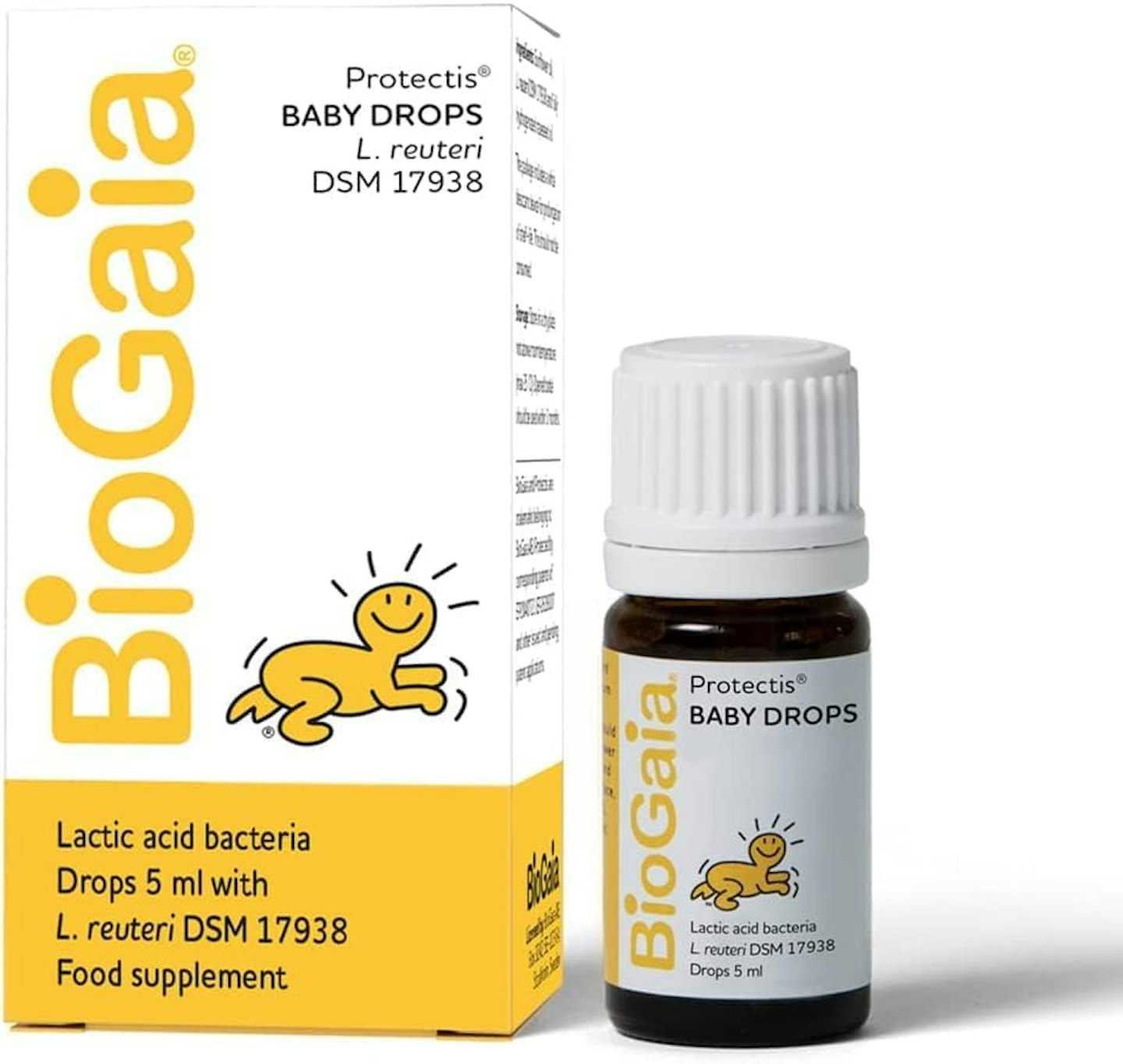
These baby drops are a safe and easy-to-use probiotic that is suitable from newborn and balances baby's gut flora and supports their gut health.
Contains: Limosilactobacillus reuteri DSM 17938
Review: "These drops are life-changing for us, I've used them on my daughter since she was 6 months with colic and reflux. It had an immediate and huge impact in a positive way! She is now 3 years old and still has them as the gastro doctor I took her to said they are the best form of probiotic you can give a child. Highly recommend."
ON SALE – 24% OFF
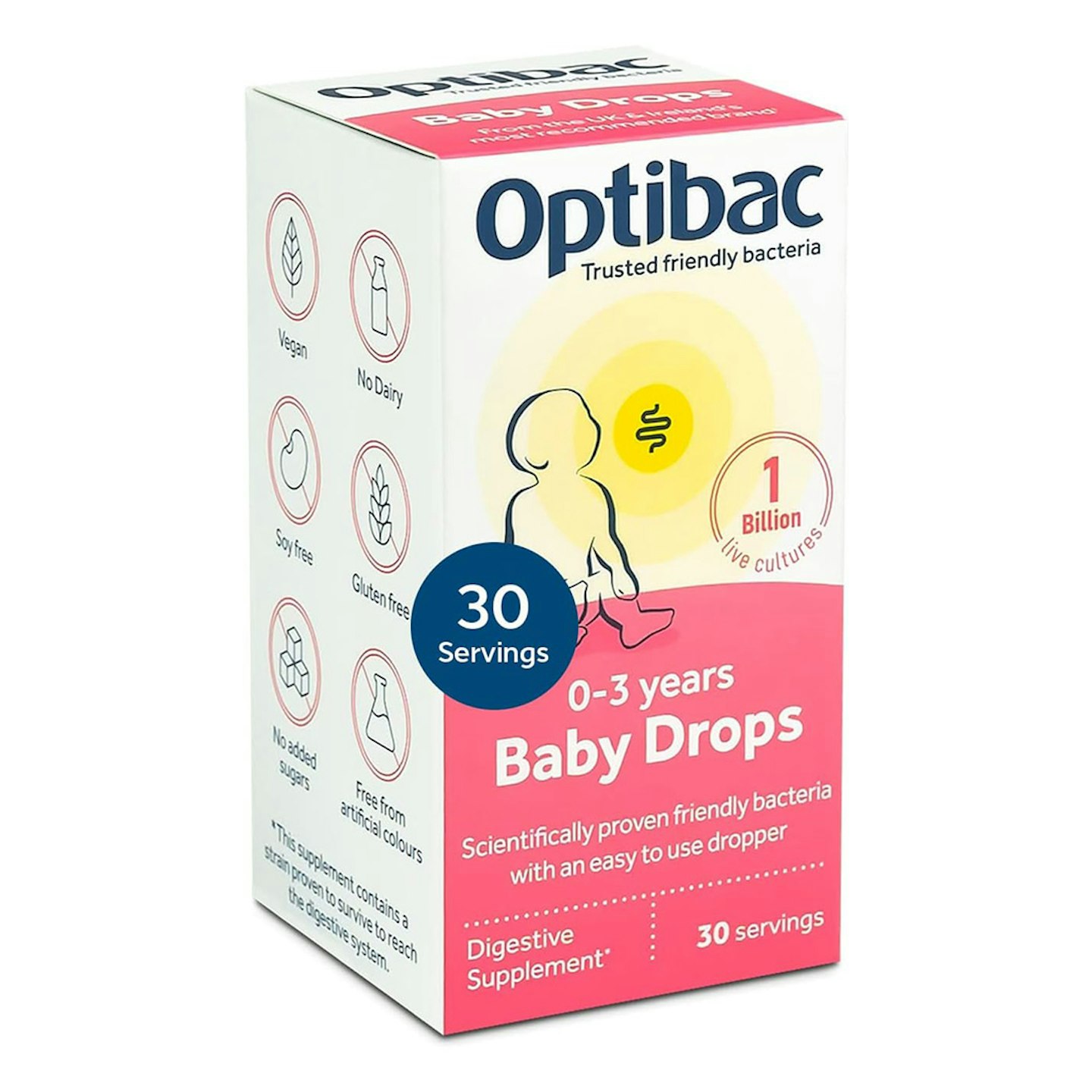
Formulated to be gentle enough to be used from birth, Optibac Probiotics Baby Drops are vegan, dairy-free, gluten-free and free from added sugar, artificial flavourings or colourings and maintain balance in baby’s gut flora by increasing natural levels of Bifidobacteria.
Contains: Bifidobacterium breve M-16V
ON SALE – SAVE £2.80
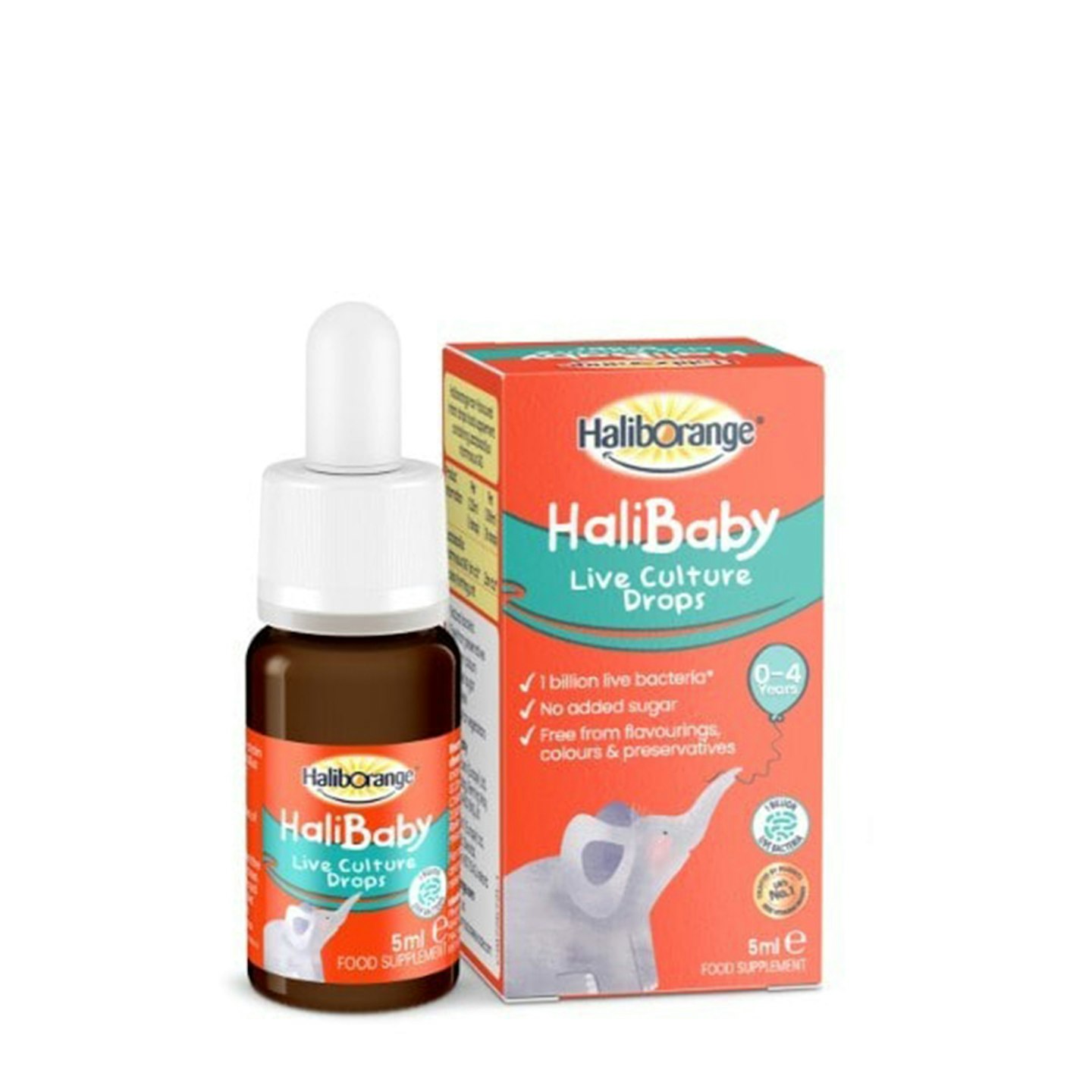
www.superdrug.com
These flavourless Halibaby Live Culture Drops provide some natural and good bacteria to balance infants, babies and toddlers’ gut flora.
Contains: Lactobacillus Rhamnosus
Currently unavailable - check back soon
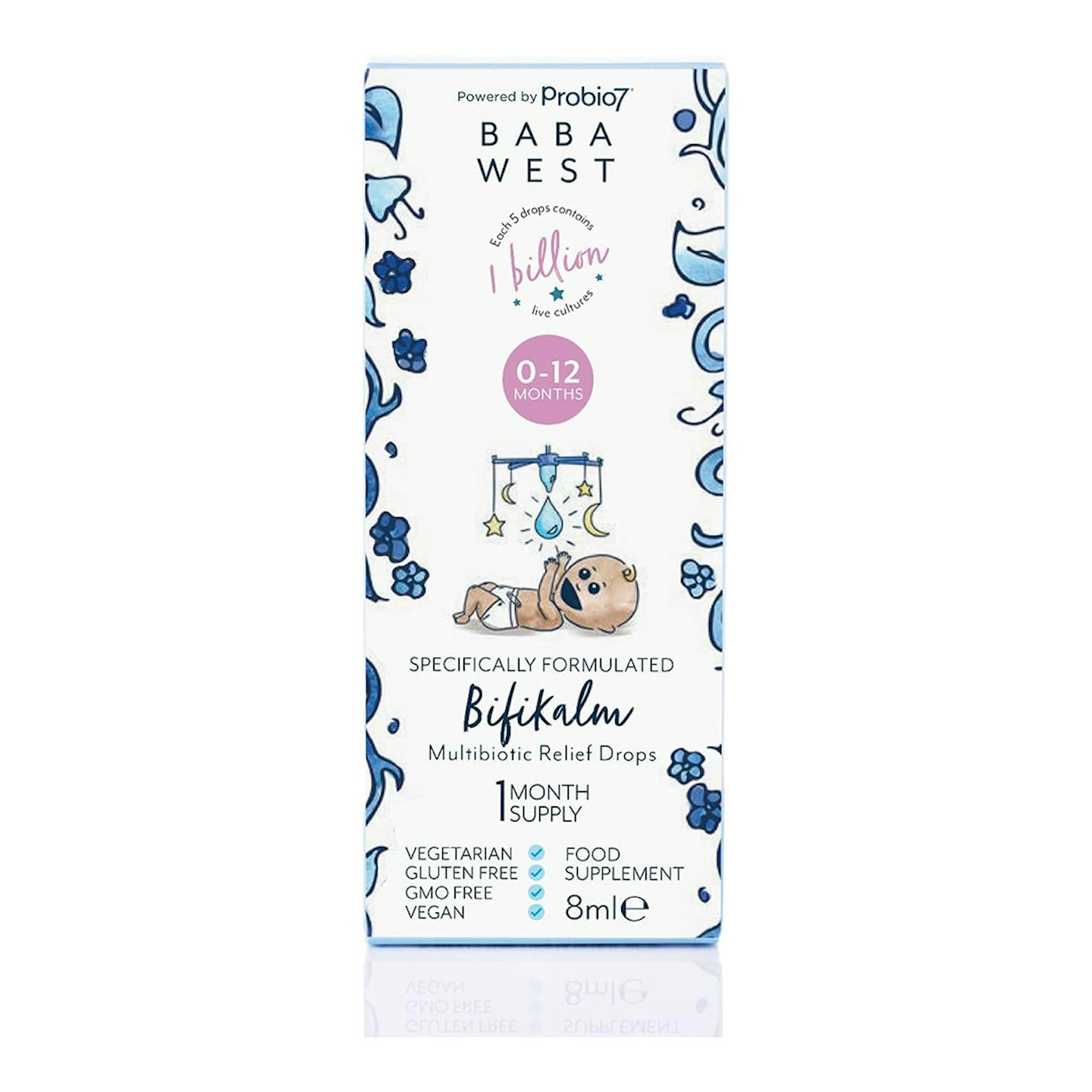
Clinically researched to help colicky babies, these drops from Baba West improve the development and balance of your child's gut microbiome and are especially beneficial for babies born via C-section.
Contains: Bifidobacterium longum
ON SALE – 19% OFF
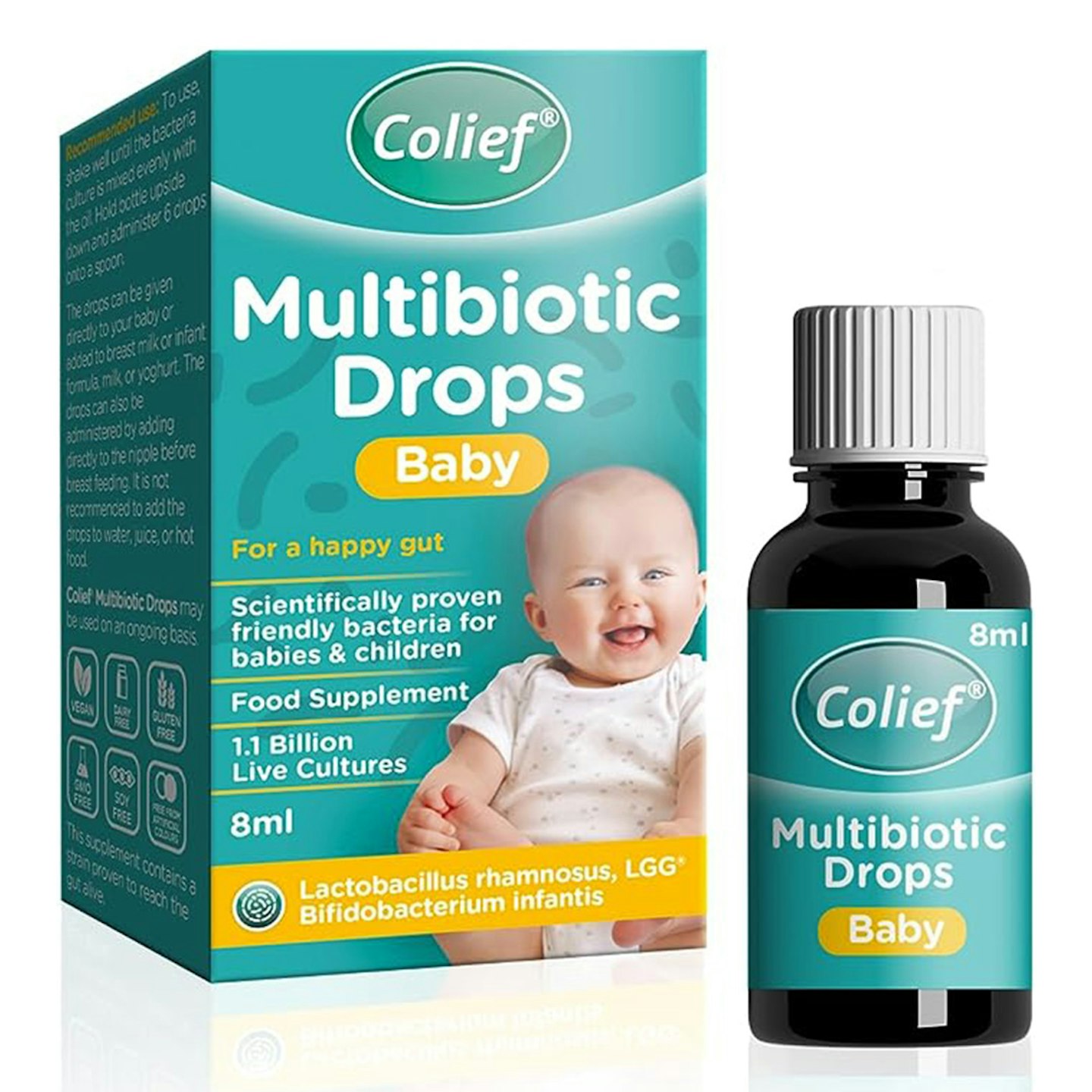
These easy-to-use drops help maintain your baby’s natural gut flora and can be given directly to your little one or can be added to breast milk, infant formula, milk, or yoghurt.
Contains: Lactobacillus Rhamnosus LGG and Bifidobacterium infantis
Currently unavailable - check back soon
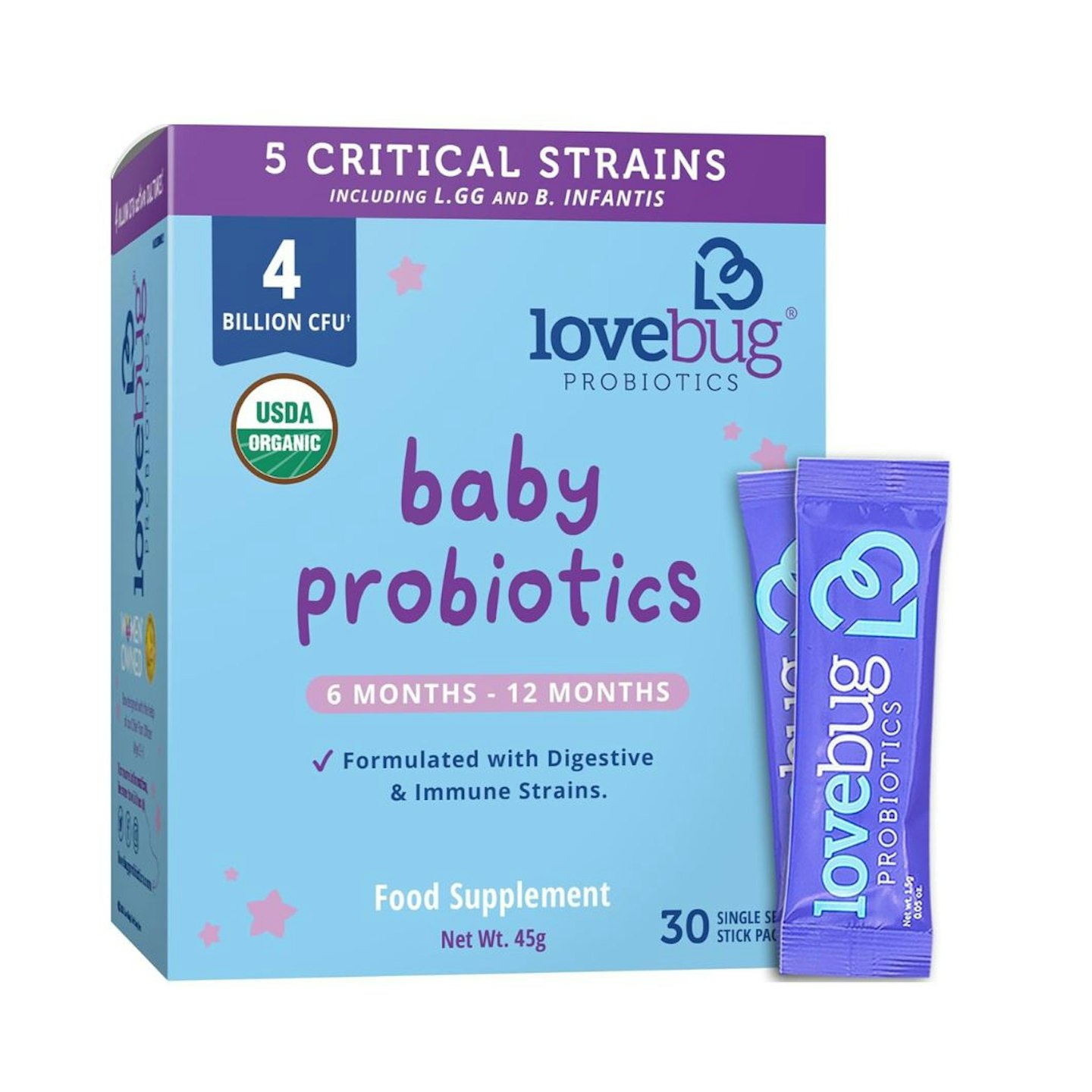
Give your baby the best start in gut health with Lovebug Probiotics Award-Winning Probiotic for Babies. Designed specifically for babies aged 6-12 months, this multi-strain probiotic contains 4 billion CFU in each easy-to-take powder packet. With no added sugar, the powder is flavorless, making it simple to mix into breast milk, formula, or water – ensuring that even the fussiest babies get their daily dose of gut-friendly bacteria.
Parents love how convenient and effective Lovebug Probiotics are. One parent reviewer says, “Easy to take them, they are tasteless so my son takes them in plain water.” This is a great option for parents who want to boost their baby’s digestive health without the fuss. With 30 packets in a pack, it’s a month’s supply of premium probiotics designed to support your baby’s developing digestive system.
ON SALE – 5% OFF
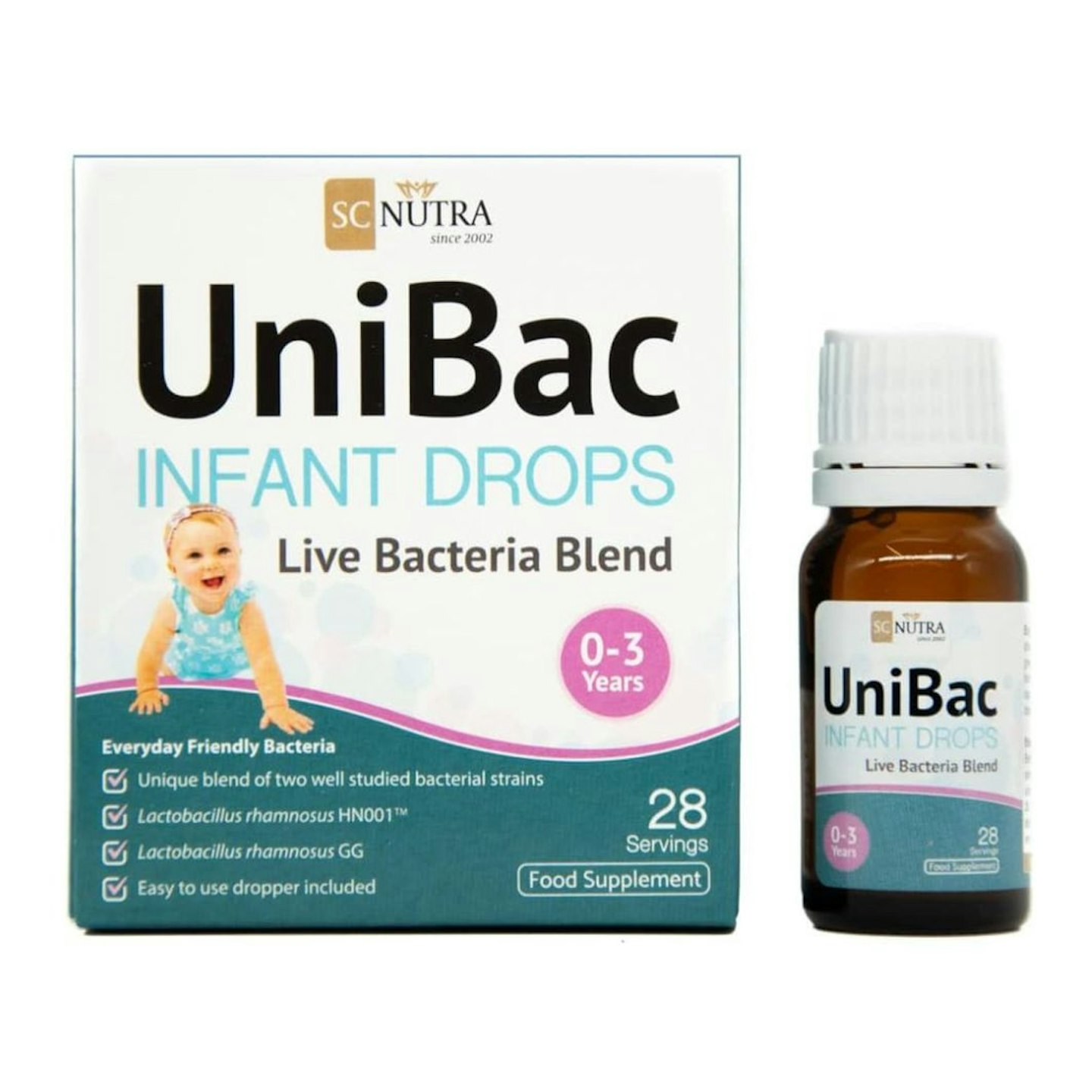
UniBac Newborn Probiotics are the perfect choice for nurturing your baby’s gut health from the very beginning. Suitable for newborns, infants, and children up to 3 years old, these probiotics contain a high-friendly bacteria count of 1.5 billion CFU per serving, carefully designed for gentle support. The easy-to-use dropper bottle makes it simple to add the probiotics to breast milk, formula, or even directly to your baby’s mouth.
This gentle probiotic blend is free from allergens, gluten, dairy, and artificial additives, making it a safe and reliable choice for parents seeking a natural option. With 30 servings per bottle, UniBac helps set a foundation for your baby’s digestive health right from birth. One parent reviewer shares, “We used this for a month and found that it helped initially as a good start-up for setting in place some good bacteria in the gut health of our newborn.”
About the expert
Paediatric dietitian Lucy Upton is a spokesperson for BioGaia and is passionate about helping all children and their families achieve happiness and health with food and nutrition. Lucy's knowledge of front-line dietetics and nutrition after over 10 years in the NHS helps to bring experienced, honest and pragmatic advice when supporting families and those interested in infant, child and adult probiotics and nutrition.
About the author
Emily Gilbert is the Features & Reviews Editor for Mother&Baby and has written for the website and previously the magazine for seven years. Emily writes about everything from the top baby products to pregnancy, fertility and maternal mental health. Specialising in product reviews, Emily is the first to know about all the exciting new releases in the parenting industry.
